Many individuals aspire to own a successful small business. However, with just 25% of all companies in the USA achieving long-term success, this aspiration is far more challenging to achieve than it initially seems.
So, if you're thinking about putting your entrepreneurial skills to the test and setting up shop, you'll need a solid foundation to build upon. In this article, we'll look at why finding a marketable idea will give you a head-start, how to brand that idea for your target market, and the permits you'll need to gain before you start operating.
Is Starting a Small Business Right For You?
First and foremost, there are a few basic things to consider before setting up your small business, such as…
-
Do You Have a Unique Value Proposition?
Every successful small business is built on a great idea, product, or service that satisfies a previously unmet need among customers. Most unsuccessful small businesses were also built on great ideas, so your business needs a robust, reliable, original value proposition that adapts to market changes.
When generating ideas for what your small business will do/sell, consider
- Ongoing problems you have that could be solved by a product or service—remember, most successful businesses revolve around a single, groundbreaking offering
- What are your unique strengths and skills?
- Who your potential customers might be
- Whether you have a network that could support and assist you with your idea, and who you'll need to get in touch with to make it a reality.
- Why you're the best person to set up and run your small business
Once you have a few potentially viable ideas, perform a SWOT (Strengths, Weaknesses, Opportunities, Threats) analysis to refine your proposal further, and identify anything you need to address before you put your plan into action. For example, suppose your product uses unusual components in its design. In that case, you'll need to contact manufacturers to discuss whether it's possible and profitable. Or, if you have an idea for a product but need clarification on technical aspects, you'll need to contact a product design professional.
-
Will Your Business Be Physical or Digital?
In the modern world, your small business can thrive just as well, and perhaps even better, as an eCommerce store rather than a physical business. Not to mention, setting up shop online is a lot cheaper than doing so in a brick-and-mortar store. This is why entrepreneurs often wait until they've built up enough capital before buying physical premises.
However, for some businesses, such as coffee shops, having physical premises and an online delivery service is a customer expectation. This means that in addition to buying, mortgaging, or renting a commercial building, you'll need to seek extra permits and perhaps hire more staff. Remember to factor all of this into your starting capital.
-
Will you be able to put in the necessary time and effort?
Though selling handmade candles or power-washing driveways is certainly possible alongside a full-time job, your small business will take a lot longer to scale if you have other commitments that take precedence. Not to mention, you'll have to work in your leisure time and might be unable to focus completely on solving any teething problems.
While you shouldn't risk your main income stream in favor of starting a small business, it's important to be realistic about how much time and effort your idea will need before it can support you. Finding the right balance between pursuing your entrepreneurial ambitions and maintaining financial stability is vital to your small business's success.
-
Can You Afford the Starting Capital?
Finally, you may have heard the adage that businesses take two, five, or even ten years to become profitable. While there's very little data to back these claims up, your small business will need to operate at a loss for a certain amount of time. After all, unless your marketing is top-notch, you won't break even on your opening day.
The potential for ongoing losses is why it's essential to consider how much money you're willing to put into your business. You can start building up an estimate for your necessary starting capital by:
- Identifying one-time startup costs, such as equipment and inventory, by checking suppliers' sites.
- Estimating recurring expenses, including rent, utilities, and insurance, by looking at LoopNet and Forbes Advisor.
- Using the above estimates, determine how much it will cost to make one of your products, or perform an hour of work as part of your services. With this information, you can work out a profitable product price or hourly rate.
- Performing a break-even analysis using your prospective selling price. This will give you an idea of how much you'll need to sell before you can start generating a profit. A break-even analysis is also a good reference point for any other goals you have, like introducing more products or hiring a second-in-command. For more information, check out this breakdown from FreshBooks.
- Researching industry benchmarks and financial projections to gauge the typical investment required for similar businesses. For example, Shopify research shows new business owners spend an average of $40,000 in their first year.
- Explore funding options, such as personal savings, loans, grants, or private investors, to secure the necessary capital for your business venture. The US Small Business Administration offers a list of potential lenders depending on your zip code.
Remember, doing all the above will only give you a rough estimate of your starting costs. It's always beneficial to have excess starting capital just in case things go wrong. It's also worth deciding sooner rather than later when you'll cut your losses and leave your business behind.
Finding and Building Your Small Business's Brand
Now that your idea is fleshed out, you've got a good idea of what you'll need to spend, and you may have even started reaching out to potential advisors, it's time to find your brand. Essentially, this is how your business communicates with its customers and advertises its products. It includes things such as your business's name, logo, and slogan, down to the colors you use on your website.
You can start to find your brand through:
Market Research
Get out there and talk to people about your small business idea. Not only will this identify demand for your offerings, but it'll also give you a sense of your potential customers. You can start to build your brand depending on who these individuals are and the type of marketing that captures their attention.
Bear in mind that market research doesn't just apply to potential customers, but also to other businesses that sell similar products or services. Take a look at the websites of companies you'll be in competition with and analyze what works about their branding.
Choosing a Niche
A niche is like a cheat code for your small business, making branding much more straightforward. For example, if you plan to look after plants for vacationers in an affluent neighborhood, your business niche might be luxury housekeeping services. This niche will inform the clean appearance of your marketing materials, how you sell yourself by showcasing your botany PhD, and the polite, professional tone of voice you use in customer communications.
Being part of a niche also opens doors to collaborations with similar businesses. And, once you've built up a reliable profit stream, you can use the journeys of other businesses in your niche for inspiration to expand your offerings.
Setting Up Your Site and Social Media
Finally, the simplest way to build and showcase your brand to your customers is by setting up a website and social media profiles on Facebook, Instagram, X, and TikTok. Though it might seem like another thing on your plate, these are essential for running a successful business in today's digital world, especially if you plan to sell your offerings online.
A branded site and social media pages make it easier for customers to find you among the myriad businesses online, and quickly learn everything they need to know about your products. You can also use your site and social media to reach out to customers and provide them with ways to reach out to you. There are countless organizations out there that will help you create a beautiful website and manage your social media pages. But, of course, these will all cost money, which you'll need to factor into your initial expenses.
Compliance and Regulatory Considerations
Hopefully, you're filled with inspiration for your new business and ready to get going. But before you start listing products, taking payment, and shipping to customers, you'll need several licenses and permits to keep you on the right side of the law. Here's a summary:
Company registration: You’ll need to choose your business's structure. If you're operating a Limited Liability Company (LLC) or Corporation, you'll need to register with your state government. However, if you're a sole proprietor, you may be able to skip this step. Be sure to check the regulations in your state.
Tax identification: If you plan on employing individuals through your business, you must fill out Form SS-4 and mail it to the IRS to get an Employer Identification Number (EIN). Also, if your state collects sales tax, you must apply for a sales tax permit with your state's Department of Revenue.
Business license: Depending on your business, you might need to obtain a license from several agencies. To start, check with your City Clerk's Office, Secretary of State's Office, or Department of Revenue. Remember, applying for a business license has a filing fee, so factor that into your expenditure.
Permits: Again, your business's permits will depend on what you do/sell. For example, real estate businesses often need a real estate license, broker's license, and signage permit to erect 'for sale' signs outside properties. Also, if you do business out of your home, you'll likely need a Home Occupation Permit.
For more in-depth information on the specific permits you'll need, take a look at this breakdown of permits by industry from the US Small Business Administration.
In Conclusion…
Starting a small business is a big commitment, but the independence, income, and sense of fulfillment it brings are well worth the time and effort. To ensure you have as strong a start as possible, refine your idea, reach out to relevant professionals, and work out how much capital you'll need to raise.
Once you have your idea, it's time to get stuck into market research, find your brand, and set up your website. Then, when you're happy with your business plan and have the infrastructure in place, you can apply for licenses and permits.
Though starting a small business is a lengthy process, it's best to spend as much time as possible laying the groundwork. Rushing during these all-important first months will mean more problems to solve later down the line, so make sure to do your research and seek help when you need it. Good luck!
Sources and Resources
- https://mailchimp.com/resources/how-to-create-business-idea/
- https://www.forbes.com/sites/allbusiness/2014/09/25/you-just-got-a-great-idea-for-a-new-business-so-now-what/
- https://www.thehartford.com/business-insurance/strategy/how-to-start-a-business
- https://www.forbes.com/uk/advisor/business/
- https://www.sba.gov/business-guide/10-steps-start-your-business
- https://business.adobe.com/blog/basics/how-to-build-a-brand
- https://www.shopify.com/uk/blog/how-to-build-a-brand
- https://www.entrepreneur.com/starting-a-business/business-the-basics-of-branding/77408
- https://www.thehartford.com/business-insurance/strategy/starting-business/licenses-for-business/
- https://www.legalzoom.com/articles/starting-a-business-a-license-and-permit-checklist




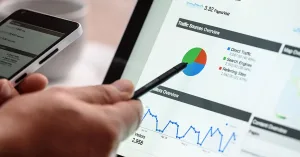



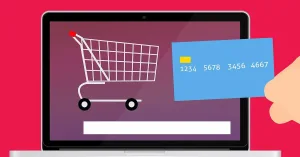



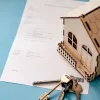

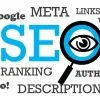
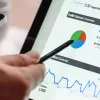





Add comment